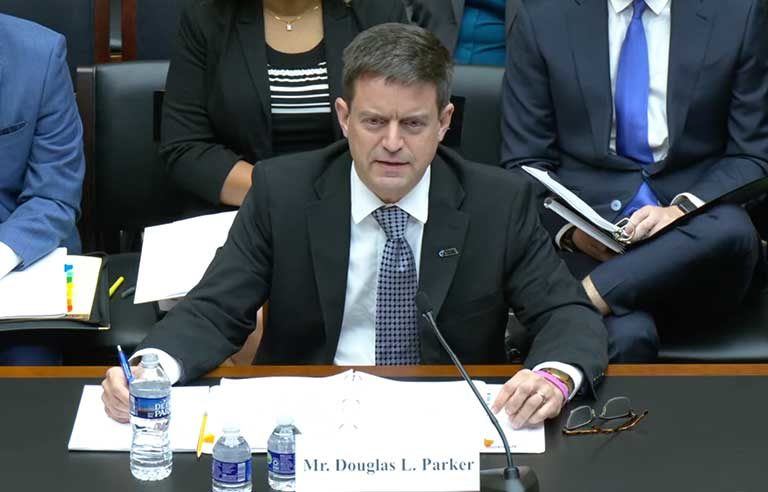Government shutdown would be ‘very concerning,’ OSHA’s Doug Parker says

Washington — A government shutdown would limit OSHA inspections to “life and property,” and a new initiative on respirable crystalline silica wouldn’t “get off the ground,” agency administrator Doug Parker said Sept. 27.
Appearing before the House Workforce Protections Subcommittee, Parker said OSHA would respond to a worker fatality, injury or complaint. “We would not be doing proactive inspections,” he said in response to a question from Rep. Haley Stevens (D-MI).
He added that safety programs operating as OSHA-approved State Plans wouldn’t receive funding.
Parker said a pause in movement on the silica initiative, announced Sept. 25, is “very concerning” to him.
“We first worked on this issue when I was in California after finding workers who had worked for 10 years in this industry had not even reached the age of 40 and were dead in the ground from silicosis. We need to take action on this. It’s extremely, gravely concerning that this effort is going to be delayed.”
On his Confined Space website, former OSHA Deputy Assistant Secretary Jordan Barb notes that OSHA staff would be allowed to work on investigations if the six-month statute of limitations is in danger of running out or if evidence exists that “the employer had not abated any high-gravity hazardous conditions and workers would have remained at risk” until a citation is issued.
“Note that the ‘essential’ OSHA employees will be working without pay – until the shutdown is settled and Congress agrees to provide back pay (which they have done in all previous shutdowns),” Barab writes.
Congress has until Sept. 30 to keep funding the government through either an appropriations bill or a short-term continuing resolution. At press time, lawmakers offered no sign that either was forthcoming.
“Workers across the country depend on OSHA to help keep them safe, and I hope Congress can provide us with the tools and resources needed to do so,” Parker said.
Possible rules on worker walkaround representation and heat
Rep. Glenn Grothman (R-WI) was among the subcommittee members who asked Parker about OSHA’s controversial proposed rule on worker walkaround representation.
“Regardless of whether it’s a union representative or some third party, if they have knowledge or expertise – whether it’s technical or real-world experience – that can contribute to that inspection,” Parker said.
Grothman also asked about a potential rule aimed at protecting workers from extreme heat exposure in indoor and outdoor settings and its effects on small businesses. Parker said that OSHA has taken a new approach in that regard.
“We’ve gone to small businesses with open-ended questions to hear from them about what they think makes sense, rather than giving them a set of rules that they have to respond to,” he said. “We’re actually hearing from them and hearing their ideas and hearing what they’re doing now to protect workers. It’s quite exciting to be part of that process.”
Child labor violations
Rep. Bobby Scott (D-VA) asked about recent reports of an increase of child labor violations.
“We see more reports of child labor and we see a troubling increase in workers who are underage being exposed to higher hazard workplaces,” Parker said. “I get heartbreaking emails in my inbox all too often about workers 13, 14 or 15 (years old) that lose an arm in a poultry processing plant or they’re pulled into a wood chipper, or just things you don’t even want to hear about.”
Post a comment to this article
Safety+Health welcomes comments that promote respectful dialogue. Please stay on topic. Comments that contain personal attacks, profanity or abusive language – or those aggressively promoting products or services – will be removed. We reserve the right to determine which comments violate our comment policy. (Anonymous comments are welcome; merely skip the “name” field in the comment box. An email address is required but will not be included with your comment.)

